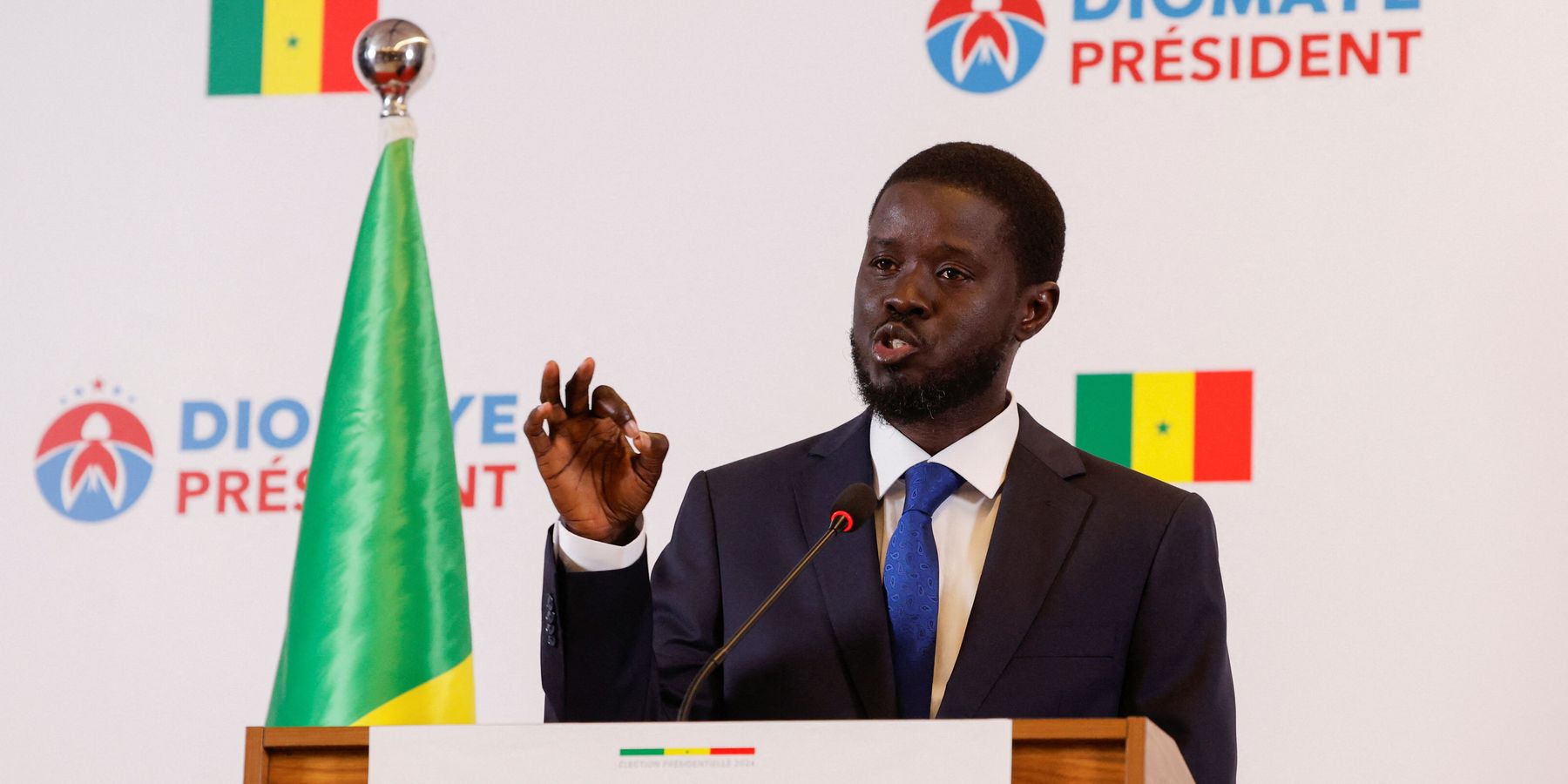Political outsider Bassirou Diomaye Faye will officially be declared the next president of Senegal Friday after cruising to victory in this week’s elections just 10 days after being released from prison.
Faye won 54% of the vote, allowing him to avoid a second round matchup with former Prime Minister Amadou Ba, the Dakar Court of Appeals announced Wednesday. Ba has conceded defeat and congratulated Faye, as has current President Macky Sall.
Experts say the peaceful transition of power is a welcome indication of stability in Senegal and a positive sign for West Africa as a whole amid a string of coups that have rocked the region’s relations with Western countries.
Senegal’s democracy, analysts say, came under threat last month after Sall made a controversial decision to postpone elections, citing corruption allegations against the Constitutional Council that decides which candidates are eligible to run in the elections, a fact he said would question the integrity of the results.
The decision drew public outrage, as well as concern from the United States, a historically close diplomatic partner with Senegal. The U.S. State Department said last month that it was “deeply concerned” about the postponement in a statement urging Senegal’s government to “move forward with its presidential election in accordance with the Constitution and electoral laws.”
It was the first time an election has been postponed in Senegal’s history, and Sall’s actions were “a jolt and a shock to the system” due to Senegal's long-held position as a stable democracy in West Africa, said Dr. Joseph Siegle, director of research at the Africa Center for Strategic Studies.
Senegal has historically promoted democratic norms, free speech, opposition party participation, and security in the region, Siegle said. It’s a stark contrast to surrounding states in the region — military coups have destabilized the governments of neighboring Mali, Burkina Faso, Niger and Guinea in recent years. Siegle said the recent election reiterates Senegal’s role as an exemplar of democratic leadership in the region.
“Senegal provides a very important counterpoint that this is how you realize change. You do it through legal means, through constitutional means, through transparent means,” Siegle said.
The election was also a significant indication of the strength of Senegal’s democratic institutions, as the judiciary promptly interpreted the constitution and rescheduled the elections in response to the postponement, said Adele Ravidà, senior election systems advisor and country director for Senegal at the International Foundation for Electoral Systems. She added that, given that these events were unforeseen, the judiciary’s actions created a precedent that increased its capabilities to respond to incidents of instability.
“This was the strength of the judiciary in Senegal, the fact that even in a situation in which there is no law, that they can find a solution to the situation,” Ravidà said.
Faye’s presidency could bring about further strengthening of Senegal’s democratic institutions. Faye has campaigned on an anti-establishment platform, stating that he plans to reduce corruption in the government and strengthen checks on presidential power.
Ravidà says it is still early to say what the potential of this new government is in fulfilling these claims. Siegle said Faye’s policies may be cause for cautious optimism that democratic norms will be further bolstered.
“That's encouraging, and given the strain to some of these norms we’ve seen in the last couple of years, that’s welcome and would be much valued across Senegal,” he said.
Ravidà added that the election demonstrates the power of civil society in mobilizing to enact change.
“[The Senegalese people] are giving the chance now to this new generation of leaders to show if they can really rule the country well. But the population is mature enough to consider that if they are not doing well, in the next five years they give the opportunity to another party or a different leader.”
President Biden congratulated Faye for his victory in a statement on Wednesday. In a press conference on Monday, U.S. State Department Spokesperson Matthew Miller said “the commitment of the Senegalese people to the democratic process is part of the foundation of our deep friendship and strong bilateral ties.”
Faye has iterated his intention to continue to maintain Senegal’s bilateral partnerships with its diplomatic partners. The U.S. currently maintains close military ties with Senegal, Siegle told RS. The countries’ militaries are partners in peacekeeping operations in the region, with the U.S. supplying aid and deploying troops to Senegal to help counter crises in the region.
Faye will be officially declared the next president of Senegal on Friday, in the event that no complaint against the electoral process is filed by Thursday night, an event Ravidà says is not anticipated. The official transfer of power will take place on April 2, the day Sall’s presidential mandate ends.
















